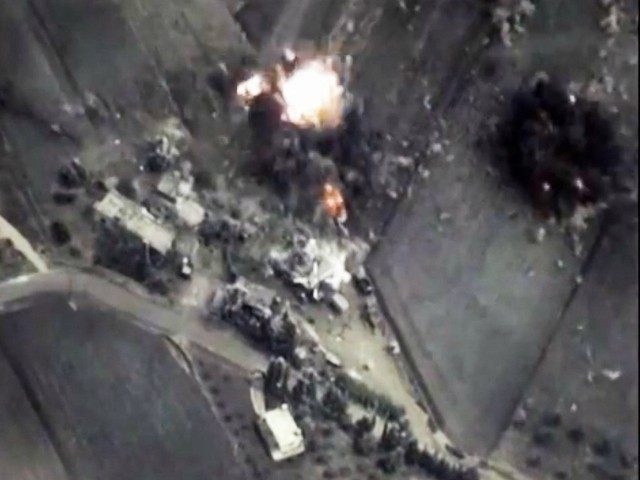Turkey was surprisingly quiet during the first day of Russian bombing in Syria, but they were certain to denounce the action, because they have long criticized the regime of dictator Bashar Assad and have insisted his removal was crucial to resolving the Syrian crisis. The Turks are not terribly fond of the Russians either.
On Thursday, Turkish Foreign Minister Feridun Sinirlioglu warned Russia’s actions could lead to “further escalation” in Syria, and repeated that Assad can play no role in a “political solution” to the five-year civil war.
At the United Nations, Sinirlioglu told reporters that if Russia was indeed bombing civilians and the non-ISIS elements of the Syrian opposition, it could lead to “further escalation, and that is the last thing that we need in this very tragic and chaotic situation in Syria.”
“The foreign minister said Syrian President Bashar Assad cannot play a part in any political solution to Syria’s crisis,” added the Associated Press.
The AP adds that the foreign minister said his country had not been invited to join the intelligence-sharing cooperative Russia has established with Syria, Iraq, and Iran.
Turkish Prime Minister Ahmet Davutoglu addressed the U.N. General Assembly on Wednesday and called for the creation of no-fly “safe areas” in Syria—an idea the Russians are unlikely to endorse at this point.
They are also unlikely to heed Davutoglu’s declaration that “anyone thinking of a solution to the Syrian crisis must think of a Syria without Assad, a vicious tyrant killing indiscriminately with chemical weapons and barrel bombs.”
Davutoglu said that every minute Assad remains in power “adds on the same of those who support him.”
“The number of Syrians who fled chemical weapons, missiles and indiscriminate aerial bombardment by the Assad regime and ground assault by the terrorist organization Daesh has exceeded 4 million. And more than 12 million internally displaced, almost half of which are children, are in desperate need of help,” Davutoglu pointed out. “This tragedy will not end before the people of Syria have a legitimate government that truly represents their will and enjoys their full consent.”
The Turkish Prime Minister had spoken optimistically about resolving the differences of opinion over the fate of the Assad regime with a “trilateral framework” involving the U.S., Turkey, and Russia.
“Turkey will not allow terror to take root or one-sided ‘fait accompli’ situations right next to her borders,” President Recep Tayyip Erdogan told his parliament on Thursday, evidently referring to the Russian campaign to solidify Assad’s regime.
Reuters notes that Saudi Arabia has also called for Russia to halt the bombing. “The delegation of my country expresses its profound concern regarding the military operations which Russian forces have carried out in Homs and Hama today, places where ISIS forces are not present. These attacks led to a number of innocent victims. We demand it stop immediately and not recur,” said the Saudi representative to the United Nations.
U.S. News & World Report notes that Turkey has maintained something of a no-fly zone along its border against Syrian aircraft for the benefit of Islamist rebel groups favored by Ankara, effectively providing “Turkish air cover for their military and logistical operations in border regions.” Chasing Syrian jets out of that region is one thing, but chasing away Russian warplanes would be quite another.
Turkey’s hopes of extending the safe zone into other parts of Syria appear to have been dashed. U.S. News speculates that the advanced Russian interceptors and anti-aircraft missiles deployed to Syria were meant primarily to intimidate the Turks.
“With Russia’s military moves balancing the gains that other jihadi groups made in Idlib in the north and Daraa in the south earlier this year, Ankara’s priority of toppling Assad has grown even more irrelevant. Ultimately, the Russian move means Ankara will have to settle for much less than it had hoped for by letting the anti-IS coalition use its air bases,” the report concludes.

COMMENTS
Please let us know if you're having issues with commenting.